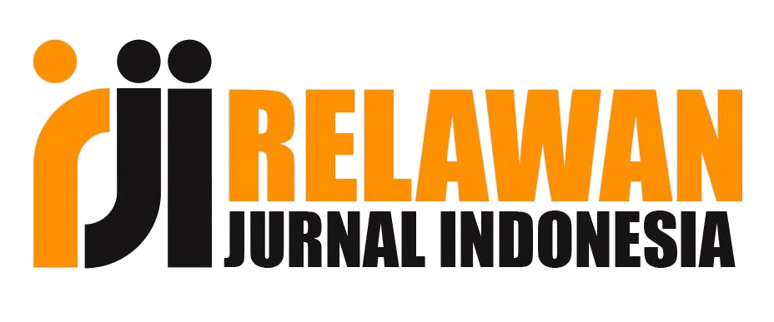Human Resource Management In Corruption Prevention: A Systematic Review
DOI:
https://doi.org/10.52250/bmr.v13i1.871Keywords:
Corruption, Corruption Prevention, Human Resource ManagementAbstract
Introduction/Main Objectives: This study aims to identify how human resource management policies and practices can be used to prevent and eradicate corruption in organizations in a particular country. Background Problems: Corruption remains a serious and widespread issue worldwide. It hinders economic development, erodes public trust, and weakens organizational and institutional integrity. The 2023 Corruption Perception Index highlights major disparities between countries, with Denmark ranked as the least corrupt and Somalia as the most corrupt. These differences emphasize the need for effective anti-corruption strategies, particularly in nations with fragile governance systems. Despite this urgency, HRM is often underutilized as a tool in addressing corruption. Novelty: This study offers a fresh perspective by framing HRM not just as an administrative support system, but as a central player in building ethical behavior and reducing corruption risks. It departs from the dominant legal and institutional focus in existing literature by emphasizing internal, human-centric approaches such as organizational culture and values. Research Methods: The study employs a systematic literature review method. It identifies, analyzes, and synthesizes academic research that explores how HRM practices—such as ethics training, awareness programs, and value-based leadership can contribute to corruption prevention. Finding/Results: The review shows that HRM practices, when integrated with ethics-oriented initiatives, can help organizations develop internal mechanisms that promote accountability, ethical decision-making, and a strong culture of integrity. Conclusion: Incorporating anti-corruption principles into HRM policies is a sustainable and strategic approach. Ethical HR practices not only strengthen organizational culture but also contribute to national anti-corruption goals and broader social welfare.
References
Ansori, J., Firman, E., Zikra, A., Abrari, A., & Budilaksono, A. (2024). Eradicating Corruption and Effective Legal Action at the Bondowoso Prosecutor’s Office. International Journal of Educational Research Excellence. https://doi.org/10.55299/ijere.v3i1.837
Azzahra, A., Dwi Savandha, S., & Olubisi, M. G. (2024). Effective Strategies for Corporate Governance and Risk Management in the Public Sector: Preventing Corruption and Abuse of Authority. In Asian Journal of Engineering, Social and Health (Vol. 3, Issue 4). https://ajesh.ph/index.php/gp
Castro, A., Phillips, N., & Ansari, S. (2018). Corporate Corruption: A Review and Research Agenda Corporate Corruption: A Review And An Agenda For Future Research.
Corruption Perceptions Index 2023. Www.Transparency.Org/Cpi
Dirwan, A. (2019). The Effect of Education against Corruption In Indonesia. www.oidaijsd.comAlsoavailableathttp://www.ssrn.com/link/OIDA-Intl-Journal-Sustainable-Dev.html
Emara, A. M. (2020). The impact of corruption on human development in egypt. In Asian Economic and Financial Review (Vol. 10, Issue 5, pp. 574–589). Asian Economic and Social Society. https://doi.org/10.18488/journal.aefr.2020.105.574.589
Hu, X., & Zhu, T. (2016). The Research of Chinese Anti-corruption Issues: Based on the Human Resource Management Perspective. Proceedings of the 6th International Conference on Electronic, Mechanical, Information and Management Society, Emim, 796–800. https://doi.org/10.2991/emim-16.2016.164
Jigjiddorj, S., Zanabazar, A., Jambal, T., & Semjid, B. (2021). Relationship Between Organizational Culture, Employee Satisfaction and Organizational Commitment. SHS Web of Conferences, 90, 1–8. https://doi.org/10.1051/shsconf/20219002004
Khairullaevich, K. Z. (2024). Socio-Philosophical Aspects Of Leadership And Its Impact On The Formation Of An Anti-Corruption Environment In Law Enforcement Agencies. International Journal of Advance Scientific Research, 4(3), 134–139. https://doi.org/10.37547/ijasr-04-03-25
Maxwell, D. G. (2008). Preventing corruption in humanitarian assistance : final research report. Transparency International.
Muhammad, F. H., & Mustafa, A. (2017). The Reality of Ethics and the Ways of strengthening them….
Nonik, V., Tkachenko, A., Arifkhodzhaieva, T., Halunko, O., & Trehub, D. (2024). Enhancing governance through anti-corruption strategies: Exemplary approaches and obstacles. In Multidisciplinary Science Journal (Vol. 6). Malque Publishing. https://doi.org/10.31893/multiscience.2024ss0704
Novianthi, D., Badawi Saluy, A., & autor, C. (n.d.). The effect of Motivation, Organization Culture to performance of Anti-corruption Instructor with certification as Intervening variable. https://doi.org/10.38035/dijefa.v4i1
Okoli, C. (2015). A guide to conducting a standalone systematic literature review. Communications of the Association for Information Systems, 37(1), 879–910. https://doi.org/10.17705/1cais.03743
Otto, W. H. (2024). The Impact of Corruption on SMEs’ Trade Credit Management Effectiveness. Journal of Risk and Financial Management, 17(12), 1–29. https://doi.org/10.3390/jrfm17120572
Pramono, A. J., & Aruzzi, M. I. (2023). The implementation of a whistleblowing system as an anti-corruption initiative in Indonesian government institutions. Integritas : Jurnal Antikorupsi, 9(2), 195–212. https://doi.org/10.32697/integritas.v9i2.942
Soehari, T. D., & Budiningsih, I. (2017). Analysis of strategic factors of human resources management for corruption prevention. International Journal of Applied Business and Economic Research, 15(6), 225–247.
Triatmanto, B., & Bawono, S. (2023). The interplay of corruption, human capital, and unemployment in Indonesia: Implications for economic development. Journal of Economic Criminology, 2, 100031. https://doi.org/10.1016/j.jeconc.2023.100031
Umar, H. (2011). Government Financial Management, Strategy for Preventing Corruption in Indonesia. The South East Asian Journal Of Management. April 2011. Vol.V. No.1
Werner, A., Rabl, T., & Best, H. (2019). Managers’ Corruption Prevention Efforts in Small and Medium-Sized Enterprises: An Exploration of Determinants. European Management Review, 16(3), 741–759. https://doi.org/10.1111/emre.12165
Downloads
Published
How to Cite
Issue
Section
License
Copyright (c) 2025 Fanesha Fazriyani, Wawan Prahyawan

This work is licensed under a Creative Commons Attribution 4.0 International License.













